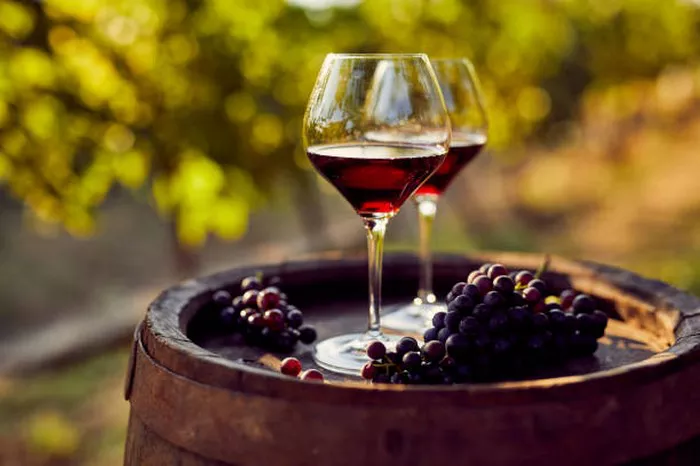Wine has been a beloved beverage for centuries, appreciated for its diverse flavors, aromas, and cultural significance. Among the wide variety of wines available, Merlot stands as one of the most popular red wine choices around the world. As individuals become increasingly health-conscious, understanding the caloric content of alcoholic beverages, including wine, has gained importance. In this article, we will delve into the caloric content of a bottle of Merlot wine, explore its nutritional aspects, and offer insights into how to enjoy wine responsibly as part of a balanced lifestyle.
What is Merlot Wine?
Merlot is a red wine grape variety known for its softness, fruitiness, and versatility. It is widely grown in various wine regions, including Bordeaux in France, where it is often blended with other grapes to create classic Bordeaux wines. Merlot grapes also thrive in regions like California, Italy, Chile, and Australia.
Merlot wines are admired for their approachable and smooth character, offering a balance of fruity flavors such as plum, cherry, and blackberry, along with subtle hints of herbs and spices. These characteristics make Merlot an excellent choice for wine enthusiasts looking for a wine that pairs well with a variety of foods and occasions.
Calories in a Bottle of Merlot Wine
The caloric content of wine, including Merlot, varies depending on its alcohol content and serving size. The general rule is that the higher the alcohol content, the more calories the wine will contain.
An average 750ml bottle of Merlot wine typically contains around 600 to 700 calories. However, this calorie count can fluctuate slightly depending on the wine’s specific alcohol content, residual sugar, and winemaking practices.
Calories in a Glass of Merlot Wine
When it comes to consuming Merlot wine, portion size is crucial for calorie intake. A standard serving size for wine is 5 ounces (approximately 148ml). One glass of Merlot wine (5 ounces) contains around 120 to 140 calories.
Factors Affecting Caloric Content
Several factors can influence the caloric content of Merlot wine:
1. Alcohol Content
The alcohol content in wine is a primary factor affecting its caloric content. Alcohol has a higher caloric density compared to carbohydrates and protein. On average, one gram of alcohol provides about 7 calories, while one gram of carbohydrates or protein provides approximately 4 calories.
2. Residual Sugar
The presence of residual sugar in wine can slightly increase its caloric content. Residual sugar refers to the natural sugars from grapes that remain in the wine after fermentation.
3. Winemaking Techniques
Certain winemaking techniques, such as barrel aging or oak fermentation, can influence the wine’s flavor and, in some cases, its caloric content.
4. Serving Size
The size of the wine pour significantly affects the number of calories consumed. Larger servings will naturally contain more calories.
Health Considerations and Wine Consumption
Moderate wine consumption, including Merlot, can be part of a balanced lifestyle for many adults. The American Heart Association defines moderate alcohol consumption as up to one drink per day for women and up to two drinks per day for men.
The potential health benefits of moderate wine consumption are attributed to the presence of certain compounds in red wine, such as resveratrol, which has been linked to heart health. However, it is essential to remember that any potential health benefits are contingent on responsible and moderate drinking habits.
Tips for Enjoying Wine Responsibly
If you choose to enjoy Merlot wine or any other alcoholic beverage, consider the following tips for responsible consumption:
1. Know Your Limits
Understand your tolerance and know when to stop drinking. Avoid excessive consumption that can lead to negative health effects.
2. Stay Hydrated
Alternate alcoholic beverages with water to stay hydrated and reduce the risk of overconsumption.
3. Pair with Food
Enjoy wine with a meal or appetizers. Food can help slow down alcohol absorption and enhance the overall dining experience.
4. Avoid Drinking and Driving
Never drink and drive. Plan for a designated driver or use ride-sharing services to ensure a safe journey home.
5. Listen to Your Body
Pay attention to how alcohol affects you individually. If you have any health conditions or take medications, consult your healthcare provider about alcohol consumption.
Conclusion
Merlot wine is a beloved red wine choice for its approachable flavors and versatility. A typical 750ml bottle of Merlot wine contains around 600 to 700 calories, while a standard 5-ounce glass provides approximately 120 to 140 calories. The caloric content of Merlot wine is influenced by factors such as alcohol content, residual sugar, and serving size.
When enjoyed responsibly and in moderation, Merlot wine can be part of a balanced lifestyle. Remember to drink responsibly, stay hydrated, and consider pairing wine with food for an enhanced culinary experience. As with any alcoholic beverage, understanding your limits and practicing responsible drinking habits are key to enjoying wine safely and appreciating its rich flavors and cultural significance.


